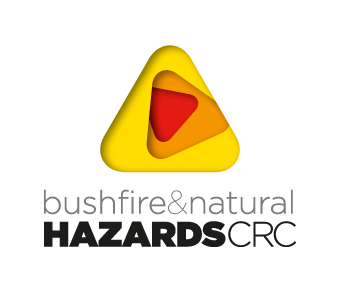Bibliographic Citations
Export 54 results:
Author Title [ Type ] Year
] Year Filters: First Letter Of Last Name is K [Clear All Filters]
, “Bushfires at the urban-rural interface”, in Communities living with hazards, Centre for Disaster Studies, James Cook University, Townsville, 2007, pp. 193 - 214.
, “Fire risk in Aboriginal peri-urban landscapes in northern Australia:Case studies from western Cape York Peninsula”, in Communities living with hazards, Townsville: Centre for Disaster Studies, James Cook University , 2007, pp. 156 -192.
, “Living with bushfires: What do people expect?”, in Communities living with hazards, Townsville: Centre for Disaster Studies, James Cook University, 2007, pp. 215 - 253.
, “Understanding communities needs for information and education”, in Risk Wise, International Strategy for Disaster Reduction (UN/ISDR), Tudor Rose, UK, 2008, pp. 41-44.
, “CAWCR Research Letters”, in Fire Weather and Severe Convection, Melbourne, 2014.
, “Applications of Very High Resolution Atmospheric Modelling for Bushfires”, 2013 Research Forum. 2013.
, “Capturing Community Members’ Bushfire Experiences: The Lake Clifton (WA) Fire”, Bushfire CRC & AFAC 2011 Conference Science Day. Bushfire CRC, Sydney, Australia, 2011.
, “The Eyre Peninsula Fire of 11 January 2005: an ACCESS case study”, 2013 Research Forum. 2013.
, “Firefighting the ‘Paradox of Place’ – The Risks and Dilemmas Associated with Knowing the Place of Fire”, 2013 Research Forum. 2013.
, “Winter Hazard Reduction Burning Reduces the Fuel Load in Themeda and Phalaris during Summer”, 2013 Research Forum. 2013.
, “Alternatives to polysomnography (PSG): A validation of wrist actigraphy and a partial-PSG system”, Behavior Research Methods, 2014.
, “Changes in understorey plant species richness following logging and prescribed burning in shrubby dry sclerophyll forests of south-eastern Australia”, Austral Ecology, vol. 33, no. 2, pp. 197 - 210, 2008.
, “A classification of landscape fire succession models: spatial simulations of fire and vegetation dynamics.”, Ecological Modelling. , vol. 179, p. Mar-27, 2005.
, “A comparison of the fire weather characteristics of the Melbourne dust storm (1983) and Black Saturday (2009): a high-resolution ACCESS case study”, 20th International Congress on Modelling and Simulation, pp. 167-172, 2013.
, “Comparison of the Sensitivity of Landscape-fire-succession Models to Variation in Terrain, Fuel Pattern, Climate and Weather”, Landscape Ecology, vol. 21, no. 1, pp. 121 - 137, 2006.
, “Do logging, followed by burning, and wildfire differ in their decadal scale effects on tall open-forest bryophytes and vascular plants?”, Forest Ecology and Management, vol. 258, no. 5, pp. 679 - 686, 2009.
, “Efficient simulation of wildfire spread on an irregular grid”, International Journal of Wildland Fire, vol. 17, no. 5, p. 614, 2008.
, “ Efficient simulation of wildfire spread on an irregular grid”, International Journal of Wildland Fire, pp. 614-627, 2008.
, “Exploring the role of fire, succession, climate, and weather on landscape dynamics using comparative modeling”, Ecological Modelling, vol. 266, pp. 172-186, 2013.
, “Exploring the role of fire, succession, climate, and weather on landscape dynamics using comparative modeling”, Ecological Modelling, vol. 266, pp. 172-186, 2013.
, “Habitat type influences fire resilience of ant assemblages in the semi-arid tropics of Northern Australia”, Journal of Arid Environments, vol. 69, no. 1, pp. 80 - 95, 2007.
, “Indigenous Wetland Burning: Conserving Natural and Cultural Resources in Australia’s World Heritage-listed Kakadu National Park”, Human Ecology, vol. 38, no. 6, pp. 721 - 729, 2010.
, “The OptIC project: An intercomparison of optimisation techniques for parameter estimation in terrestrial biogeochemical models”, Journal of Geophysical Research , 2007.
, “Patchiness of prescribed burns in dry sclerophyll eucalypt forests in South-eastern Australia”, Forest Ecology and Management, vol. 252, no. 1-3, pp. 24 - 32, 2007.
, “Patch-Occupancy Modeling as a Method for Monitoring Changes in Forest Floristics: a Case Study in Southeastern Australia”, Conservation Biology, vol. 23, no. 3, pp. 740 - 749, 2009.
, “Planning for more bushfires: implications of urban growth and climate change”, Queensland Planner, vol. 47, pp. 23-26, 2007.
, “Preparing for bushfires: understanding intentions”, Disaster Prevention and Management, vol. 15, no. 4, pp. 566 - 575, 2006.
, “Quantifying successional changes in response to forest disturbances”, Applied Vegetation Science, vol. 11, no. 2, pp. 261 - 268, 2009.
, “The relationship between fire behaviour measures and community loss: an exploratory analysis for developing a bushfire severity scale”, Natural Hazards, 2012.
, “The relative importance of fine-scale fuel mosaics on reducing fire risk in south-west Tasmania, Australia”, International Journal of Wildland Fire, vol. 17, no. 3, p. 421, 2008.
, “Relative importance of fuel management, ignition management and weather for area burned: evidence from five landscape–fire–succession models”, International Journal of Wildland Fire, vol. 18, no. 2, p. 147, 2009.
, “A 'responsibility for place' - firefighter deployment, local knowledge and risk”, International Journal of Wildland Fire, 2014.
, “Simplifying assessment of forest management practices for invertebrates: How effective are higher taxon and habitat surrogates for spiders following prescribed burning?”, Forest Ecology & Management, pp. 123-154, 2006.
, “Simulation of prescribed burning strategies in south-west Tasmania, Australia: effects on unplanned fires, fire regimes, and ecological management values”, International Journal of Wildland Fire, vol. 15, no. 4, p. 527, 2006.
, “Stand-replacing wildfires?The incidence of multi-cohort and single-cohort Eucalyptus regnans and E. obliqua forests in southern Tasmania”, Forest Ecology and Management, vol. 258, no. 4, pp. 366 - 375, 2009.
, “Strong host preference of ectomycorrhizal fungi in a Tasmanian wet sclerophyll forest as revealed by DNA barcoding and taxon-specific primers”, New Phytologist, vol. 180, no. 2, pp. 479 - 490, 2008.
, “Urban–wildland fires: how California and other regions of the US can learn from Australia”, Environmental Research Letters, vol. 4, no. 1, p. 014010, 2009.
, “An assessment of drop patterns, penetration and persistence of water and foam form medium aerial platforms in grassland, open woodlands and pine forest in the ACT”, ACT Rural Fire Service, 2006. air_sup_summer_student_report_06.pdf (1.1 MB)
air_sup_summer_student_report_06.pdf (1.1 MB)
, “Assessment of the application of compressed air foam technology for grassfire fighting”, 2006. cafs_summer_student_report_06.pdf (1.02 MB)
cafs_summer_student_report_06.pdf (1.02 MB)
, “Effective Communication of Bushfire Risk in the Urban-Parkland Interface”, 2012. effective_communication_of_bushfire_risk_in_the_urban-parkland_interface.pdf (2.37 MB)
effective_communication_of_bushfire_risk_in_the_urban-parkland_interface.pdf (2.37 MB)
, “Fire Development, Transitions and Suppression Final Report”, 2014. fire_development_transitions_and_suppression_final_report.pdf (16.6 MB)
fire_development_transitions_and_suppression_final_report.pdf (16.6 MB)
, “Fire Dynamics in Mallee Heath Vegetation”, 2010. firedynamicsinmalleeheathreport.pdf (3.22 MB)
firedynamicsinmalleeheathreport.pdf (3.22 MB)
, “Fire Impact and Risk Evaluation Decision Support Tool (FIREDST) - Final Report”, 2014. firedst_final_report_may_2014_final_for_web.pdf (5.73 MB)
firedst_final_report_may_2014_final_for_web.pdf (5.73 MB)
, “Fire Impact and Risk Evaluation Decision Support Tool (FIREDST) - Final Report”, 2014. firedst_final_report_may_2014_final_for_web.pdf (5.73 MB)
firedst_final_report_may_2014_final_for_web.pdf (5.73 MB)
, “Living in a land of fire”, 2006.
, “Measuring the Health Impact of Bushfire Smoke: Companion Volume for the Fire DST Project”, 2014. health_impact_of_bushfire_smoke_final_report.pdf (2.67 MB)
health_impact_of_bushfire_smoke_final_report.pdf (2.67 MB)
, “Overview of bushfire spread simulation systems.”, BCRC, 2005. uwa_simulators_overview.pdf (1.04 MB)
uwa_simulators_overview.pdf (1.04 MB)
, “Project Vesta- Fire in dry eucalypt Forest: Fuel structure, fuel dynamics and fire behaviour”, Ensis- CSIRO & Department of Enivironment and Conservation, WA, 2007.
, “Understanding Complex Fire Behaviour: Modelling Investigation of Lofting Phenomena and Wind Variability Final Report”, 2014. bom-firespread_project_final_report.pdf (3.68 MB)
bom-firespread_project_final_report.pdf (3.68 MB)
, “The effect of fire frequency on the understorey of a subalpine snow gum forest. ”, The Australian National University, 2004.


